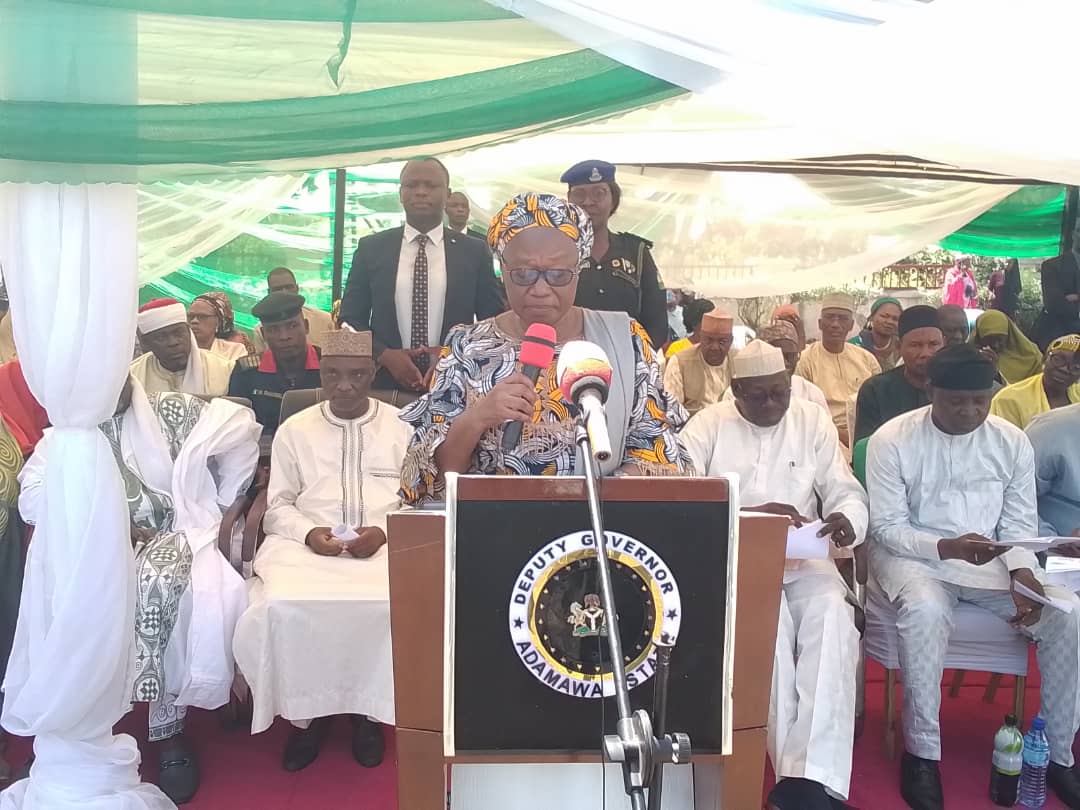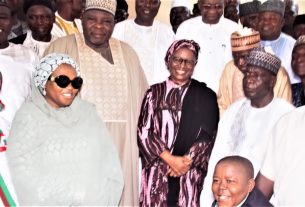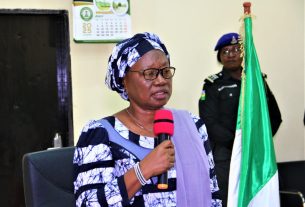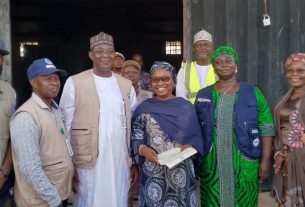Adamawa state Deputy Governor, Professor Kaletapwa Farauta, on Monday inaugurated
state wide screening of hypertension and diabetes mellitus targeted at 230,435 residents
Farauta who represented her principal, Governor Ahmadu Fintiri said the weeklong program is under the project 10 million target for Nigerians.
She disclosed that those who test positive of the diseases would be automatically enrolled under the Adamawa State Contribotary
Health Management Agency (ASCHMA), to access one year free treatment.
She said government recognized the diseases prevelent in communities often leading to severe complications, disabilities and in unfortunate cases results to fatalities, hence the establishment of more and upgrading of cottage hospitals equipped with trained medical personnels to strengthening health care services.
“In Adamawa state, our goal for project 10m is to screen 230,435 residents.
“The campaign would reach every local government area in the state from urban centres to remote villages, ensuring that all people, have equally access to health services.
She listed Specialist hospitals, General and Cottage hospitals, Primary Health Care Centres,. markets, places of worship, where health workers would be stationed for the exercise.
Commissioner for Health and Human Services Mr Felix Tangwami noted that the campaign is aimed to enhance equitable access to health services by every citizens.
He appreciated government support to achievement in the health sector.
“We have meant significant stride in prioritizing accessable and affordable quality health care in the state.
In his remarks, Dr. Sulaiman Saidu Bashir, Executive Chairman of the Adamawa State Primary Health Care Development Agency (ADSPHCDA) said the agency would would link those screened postive to care and referral partway with other sister agencies for more care.
He assured the exercise would effectively to carried out at the 670 primary health care facilities in the 21 LGAs.
The District Head of Girei and Ubandoma Adamawa, Dr Ahmed Mustafa, assured of traditional institution’s support for the exercise.
By Hussaini Hammangabdo




